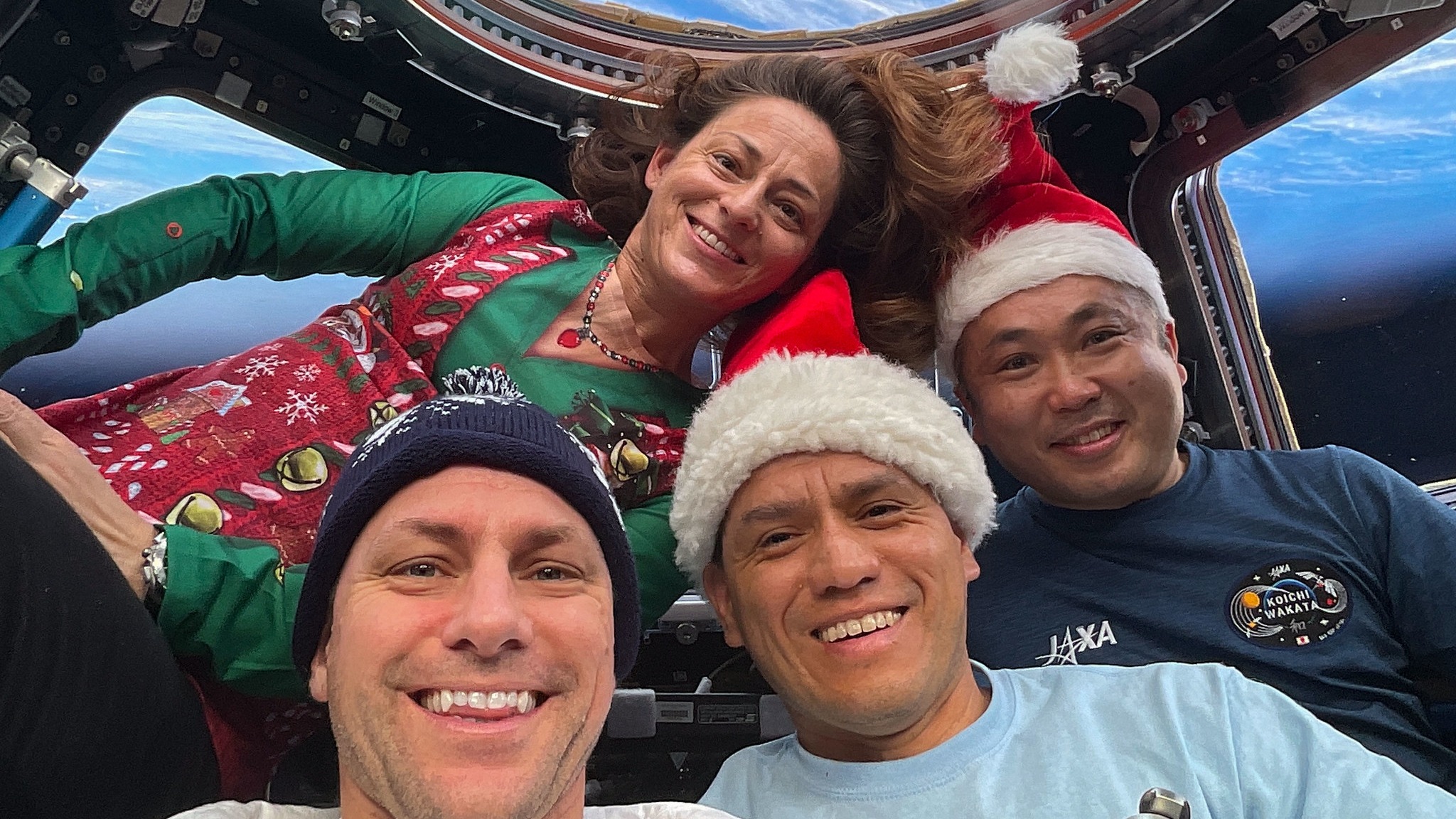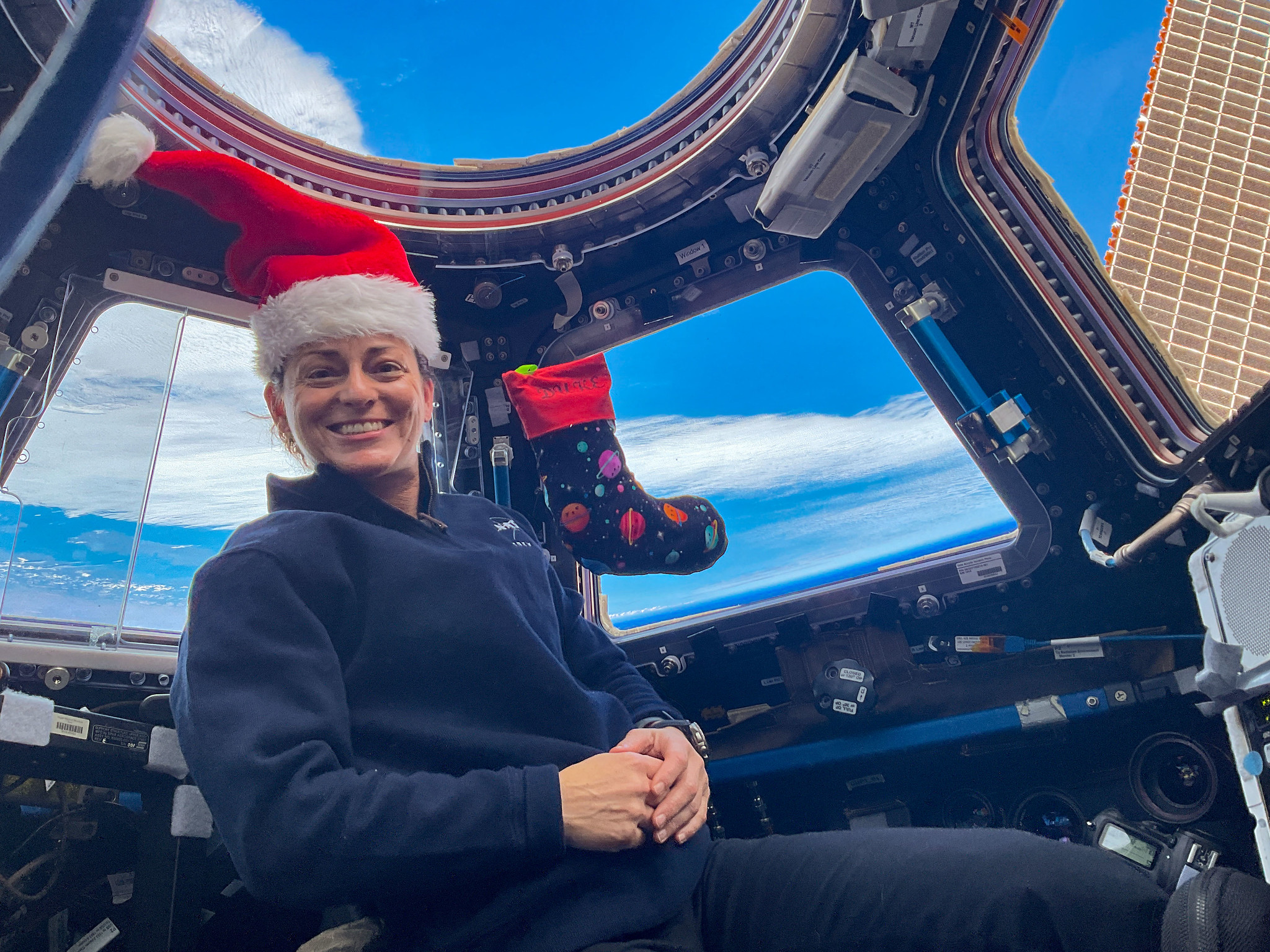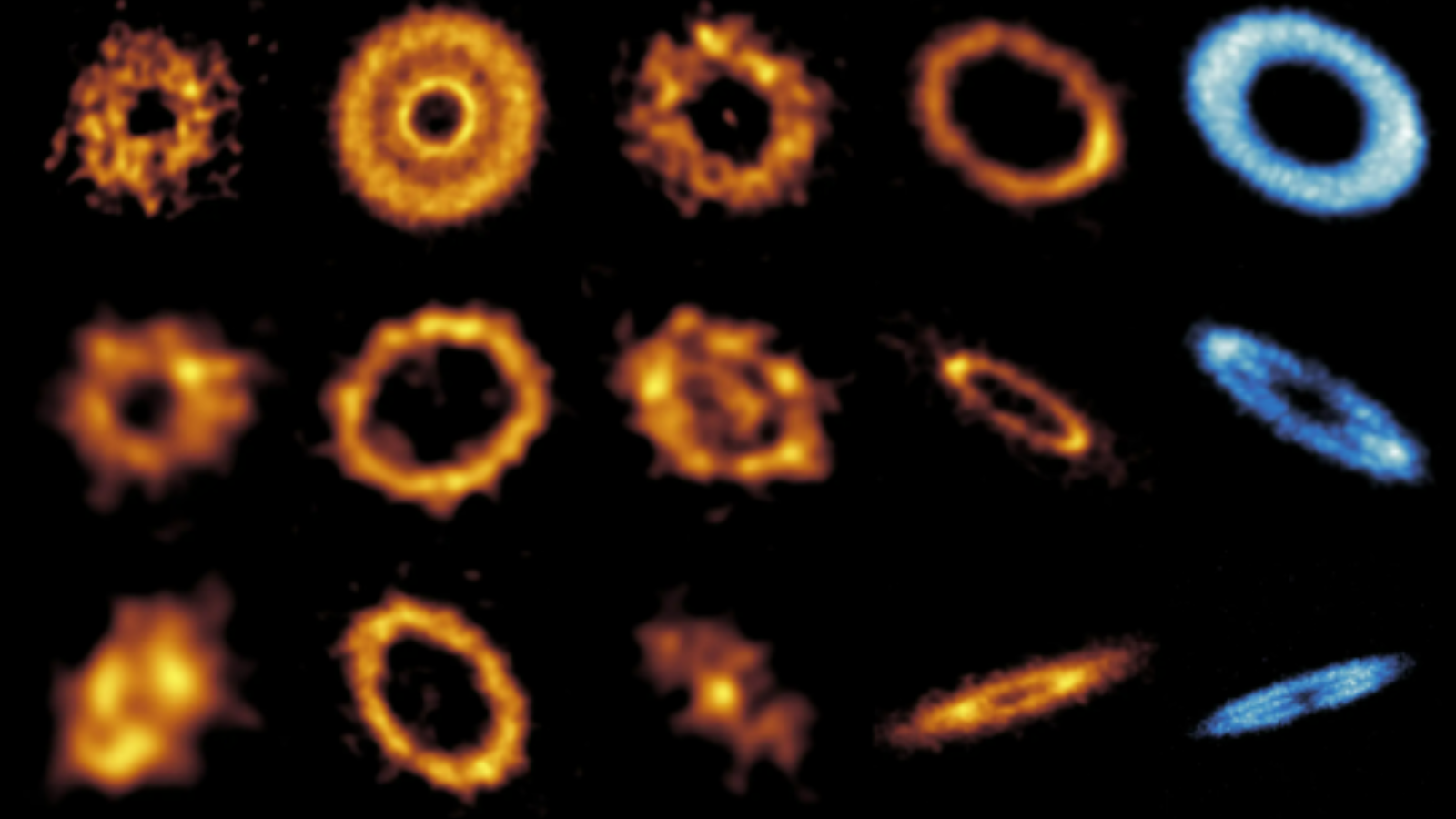On International Space Station, astronauts ring in New Year 2023 ahead of 2nd Christmas
Santa hats and holiday cheer were present on both sides of the International Space Station.

A new year is rising in space.
The seven Expedition 68 crew members celebrated the arrival of 2023 on the International Space Station in holiday style, including Santa hats, streamers and an adapted Orthodox Christmas tree ahead of the Russian celebration Jan. 6.
"Just like back home, we have a tradition here to put up a New Year tree and decorate the interior of the space station to celebrate the New Year. Today, we will show you how to do it under zero-gravity conditions," Russian cosmonaut
Sergey Prokopyev said in a video message from Roscosmos on Thursday (Dec. 29), with translation provided by state media provider TASS.
Beside Prokopyev, Russian cosmonauts Dmitry Petelin and Anna Kikina put up tiny ornaments and performed somersaults, all underneath a colored banner festooned with the words "New Year" in Cyrillic. Holiday cheer also spread to the U.S. side of the orbiting complex.
Related: No chimney? No problem! How Santa will visit astronauts on the International Space Station (video)
Российские космонавты в невесомости украсили МКС под Новый год:https://t.co/iehc5iNMNBВидео: Роскосмос pic.twitter.com/0XMblQ0JClDecember 29, 2022
In a NASA video uploaded last week, Japanese astronaut Koichi Wakata pledged to take an image of the first orbital sunrise of 2023 in one of the nearby modules in the ISS Kibo module, also provided by Japan.
The U.S. astronauts have been quiet on social media during the holiday season, but in the meantime, NASA uploaded a few photos on Flickr of the crew floating around the space station with Santa hats, stockings and holiday sweaters.
Breaking space news, the latest updates on rocket launches, skywatching events and more!
It will be a busy early 2023 for the Expedition 68 crew after Russia determines what to do with a Soyuz spacecraft that suddenly started leaking coolant on Dec. 15. There is no immediate danger to the space station crew, but it is unclear whether the Soyuz, called MS-22, can bear Prokopyev, Petelin and Rubio back to Earth as planned.
Russia has pledged its "final decision" in January on whether to send up a rescue Soyuz (which would arrive no earlier than February) or to bring the three affected crew members home in Soyuz MS-22, according to reports.
NASA has also reached out to SpaceX to see whether it would be possible to bring the trio home in a Crew Dragon spacecraft, if no other backup is available. Dragon Endeavour is docked to the space station right now, but is nominally full as it is scheduled to bring Mann, Cassada, Wakata and Kikina back to Earth.
The cause of the Soyuz leak has not yet been determined, but follow-up scans of the spacecraft revealed a hole in the radiator that might be from a micrometeoroid, or a piece of space debris too small to track. The three Soyuz MS-22 crew members might be without a lifeboat in the meantime, in case of emergency on the ISS.
Elizabeth Howell is the co-author of "Why Am I Taller?" (ECW Press, 2022; with Canadian astronaut Dave Williams), a book about space medicine. Follow her on Twitter @howellspace. Follow us on Twitter @Spacedotcom or Facebook.

Elizabeth Howell (she/her), Ph.D., was a staff writer in the spaceflight channel between 2022 and 2024 specializing in Canadian space news. She was contributing writer for Space.com for 10 years from 2012 to 2024. Elizabeth's reporting includes multiple exclusives with the White House, leading world coverage about a lost-and-found space tomato on the International Space Station, witnessing five human spaceflight launches on two continents, flying parabolic, working inside a spacesuit, and participating in a simulated Mars mission. Her latest book, "Why Am I Taller?" (ECW Press, 2022) is co-written with astronaut Dave Williams.

